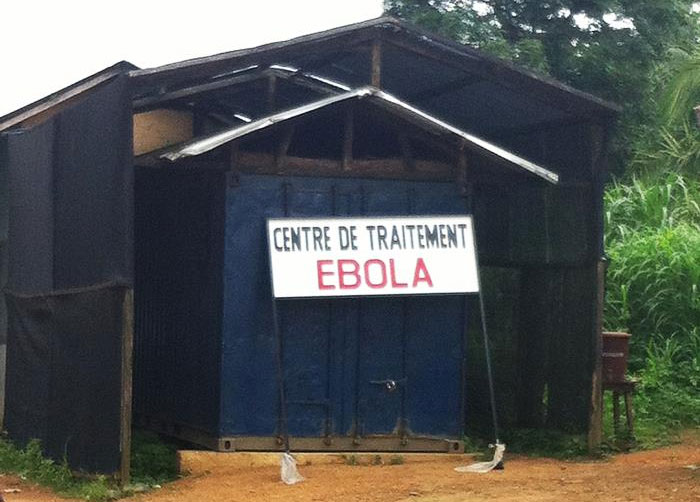Ebola Survivors Face Hardships, But New Programs Help

Get the world’s most fascinating discoveries delivered straight to your inbox.
You are now subscribed
Your newsletter sign-up was successful
Want to add more newsletters?

Delivered Daily
Daily Newsletter
Sign up for the latest discoveries, groundbreaking research and fascinating breakthroughs that impact you and the wider world direct to your inbox.

Once a week
Life's Little Mysteries
Feed your curiosity with an exclusive mystery every week, solved with science and delivered direct to your inbox before it's seen anywhere else.

Once a week
How It Works
Sign up to our free science & technology newsletter for your weekly fix of fascinating articles, quick quizzes, amazing images, and more

Delivered daily
Space.com Newsletter
Breaking space news, the latest updates on rocket launches, skywatching events and more!

Once a month
Watch This Space
Sign up to our monthly entertainment newsletter to keep up with all our coverage of the latest sci-fi and space movies, tv shows, games and books.

Once a week
Night Sky This Week
Discover this week's must-see night sky events, moon phases, and stunning astrophotos. Sign up for our skywatching newsletter and explore the universe with us!
Join the club
Get full access to premium articles, exclusive features and a growing list of member rewards.
Ebola survivors in West Africa are often shunned by their communities, and they have few possessions because many of their personal belongings are destroyed to prevent the disease from spreading.
But several organizations are working to help Ebola survivors make the transition back into their communities — for example, by providing them with bedding and other basic items, and speaking with community members to reduce the stigma, according to the Centers for Disease Control and Prevention.
Survivors are thought to be immune to the strain of Ebola causing the current outbreak, and many now work as caregivers for those with Ebola, the report said.
"Nothing says more about the resilience of the human spirit than Ebola survivors who become role models for their communities," Dr. Tom Frieden, director of the CDC, said in a statement. "They show others that Ebola can be defeated, and provide care, support and inspiration for others stricken by this terrible disease."
About 30 to 40 percent of people in West Africa who are infected with Ebola survive the disease, and there are now thousands of Ebola survivors in the region, the CDC said. [How Do People Survive Ebola?]
In Sierra Leone, more than 1,100 people have survived Ebola as of Dec. 6, according to a new CDC report. However, a recent survey in the country found that 96 percent of the general population reported a discriminatory attitude toward people with Ebola or those who'd had the disease in the past.
Now, the Sierra Leone government, along with the CDC and other organizations, have formed a consortium to support Ebola survivors. Survivors receive a packet that includes cash, bedding, clothing and other essential items.
Get the world’s most fascinating discoveries delivered straight to your inbox.
They also receive help from counselors, who accompany survivors back to their communities, and speak with town members about the importance of survivor acceptance, the CDC said.
In Liberia, a rubber tree plantation company called Firestone Liberia Inc. has developed a program to help Ebola survivors in the area. Ebola survivors are counseled, and before they go back to their communities, a team of people speaks with the survivors' neighbors and emphasizes that the survivors are no longer sick with Ebola.
Members of a reintegration team also check up on survivors every week for three months to provide social and psychological support.
"Well-coordinated survivor reintegration programs help stop the spread of Ebola and heal communities," Frieden said.
Two reports about the efforts to provide support to Ebola survivors are published today (Dec. 12) in the CDC journal Morbidity and Mortality Weekly Report.
Follow Rachael Rettner @RachaelRettner. Follow Live Science @livescience, Facebook & Google+. Original article on Live Science.

Rachael is a Live Science contributor, and was a former channel editor and senior writer for Live Science between 2010 and 2022. She has a master's degree in journalism from New York University's Science, Health and Environmental Reporting Program. She also holds a B.S. in molecular biology and an M.S. in biology from the University of California, San Diego. Her work has appeared in Scienceline, The Washington Post and Scientific American.
 Live Science Plus
Live Science Plus










